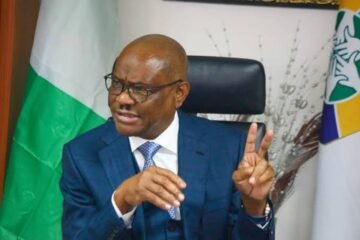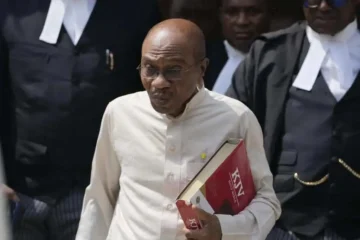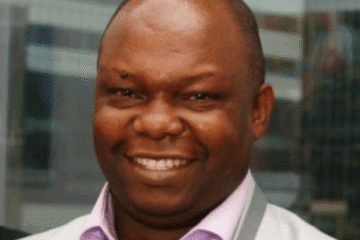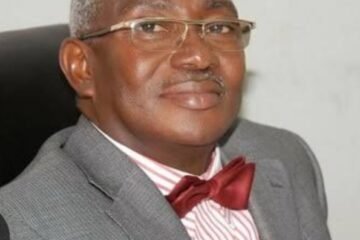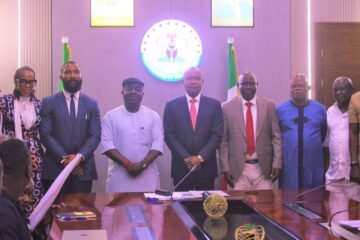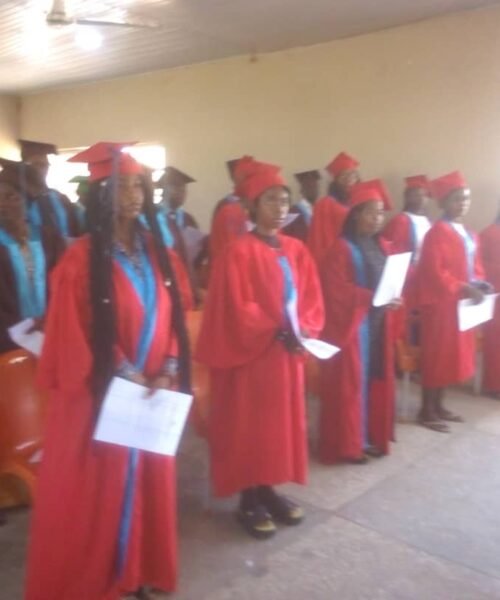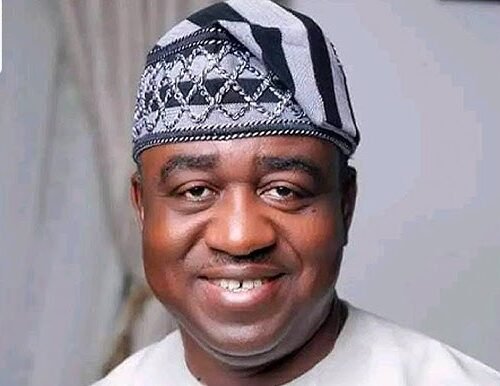By SHEDDY OZOENE
The idea of writing this book came about, first as the account of the making of the administration of Rt. Hon. Ifeanyi Ugwuanyi as governor of Enugu state. As a spectator with a front row seat, I observed the many intrigues that played out during the campaign, and the various developments that took place before his eventual coronation on May 29, 2015. The urge to put those experiences in writing was strong.
I actually started the project in 2016, but stopped momentarily in 2017 when I went from being an observer to a participant in the governance of my state, first as Senior Special Assistant to the governor from 2016 to the end of the first tenure in 2019, to the brief period I acted as Chairman of my Udi Local Government Area from September to December 2017. The political developments of that year would alter the storyline in a profound way. The gap in relationship between Governor Ugwuanyi and his predecessor in office, Sullivan Chime had widened to the point that the usually restrained Chime started making uncomplimentary statements against his successor in office and the Peoples Democratic Party he had led for eight years.
What started as a rumour that both leaders had parted ways became a reality in May 2017 when Chime quit the party and joined the rival All Progressives Congress, APC. The parting of ways was a big surprise to political watchers in Nigeria, even if such has repeatedly happened before in Enugu state. Such quarrels between newly-elected governors and their predecessors, leading to the struggle for political territory, has been a recurring decimal in Enugu politics. The battle for space between godson and his godfather that normally results once a new governor is installed in the state can be complex and messy indeed, one that the PDP which has had the lot of ruling the state since 1999, has not found a solution to.
Midway into writing, I stopped and reflected on the past and what has become a recurring event. It started with former Governor Chimaroke Nnamani who fell out with his political godfather, Chief Jim Nwobodo – first civilian governor of old Anambra State – within weeks of his election. Jim had allegedly gone to the moon and back all in the effort to install him as governor in 1999 but it took Nnamani less than two years to pull away, deflate his huge political ego, decimate his political structure and deny him a return ticket to the Nigerian Senate in 2003. Nwobodo eventually had to contest the 2003 elections on the platform of the UNPP, which he lost.

The book, CLASH OF INTERESTS
Nnamani suffered the same fate in the hands of his protégé and political godson, Sullivan Chime who served him as Attorney-General and Commissioner for Justice and whom he installed, against all odds, as his successor in 2007. Chime did so much to obliterate his legacies in the state, not least the Ebeano political vehicle which he all but dismantled while hoisting his own, the Total Mandate. With time, it was obvious to Nnamani who was derisively taunted as a “truant senator” who was never present during Senate proceedings, that he would similarly be denied a return ticket to the Senate in 2011, so he quit the PDP and floated the Peoples’ Democratic Congress (PDC). He lost the Enugu East senatorial contests of 2011 and 2015 which he contested on the PDC platform to one of his rebellious political godsons, Gil Nnaji of the PDP.
In 2015, it was the turn of Sullivan Chime to handpick his successor, like previous governors did before him. He cast his lot with Ifeanyi Ugwuanyi as his successor but their honeymoon lasted less than a year. He did not bother to disclose his frustrations with Ugwuanyi but it was obvious that Ugwuanyi’s decision to renege on key promises of continuity in execution of some legacy projects was fundamental. Not only was the 4-point agenda redefined, some of Chime’s decisions and key policies were reversed. To add to those, Ugwuanyi is believed to have instigated the state Assembly to commence a probe of his revenue generation records. Less than a year out of office, Chime fought back by making unsavoury comments about the party before he descended on the man whose candidature he strenuously sold to the people of the state.
Though Chime’s departure was comparatively less acrimonious, it followed the same pattern like the previous ones, but it was one division in which Ike Ekweremadu, quite unlike in past quarrels, took a strong position. A day after Chime decamped into the APC in a rally hosted in Udi, the Deputy Senate President had described his longstanding ally as an inexperienced politician who had not learnt from the experiences of past politicians in the state who abandoned parties that brought them to limelight. “Chime has no sufficient experience in politics, and that is his problem,” he was quoted by the Guardian newspapers as saying. “There are about 60 APC senators, but not one of them came to his rally. He should learn from history of politicians who left their parties in Enugu State: Jim Nwobodo quarreled with Chimaroke Nnamani and left to join the opposition. He never recovered. Chimaroke quarreled with Sullivan Chime and he left and formed another party, but he never recovered. Now Chime has left the party that gave him fame, I bet you he will never recover from it.”
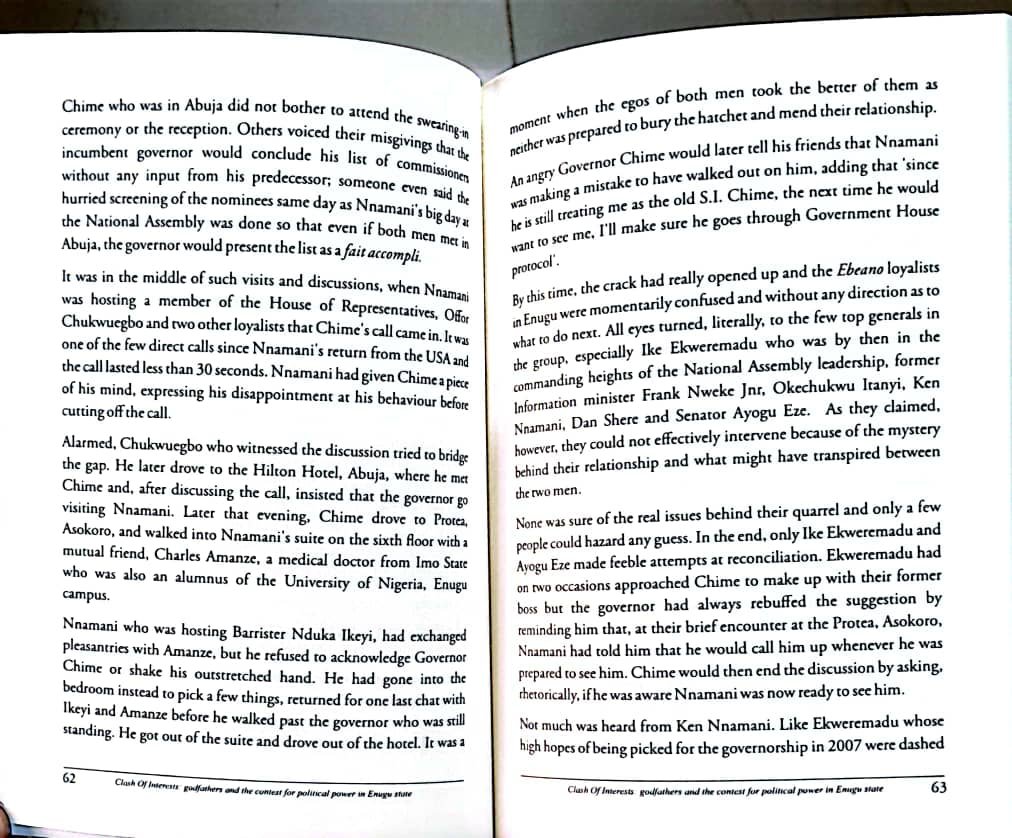
A peep into the pages
My reporter’s instinct took over: the scenario was becoming more interesting by the day so I decided to change the focus of the book. I decided to expand it to detail the unfolding scenario and report them against the background of the state’s successive political transitions since its creation and how interests –personal and group – ultimately resulted into political crises. It became obvious that the story would have to start – as they say – from the beginning.
It is a scenario that was foisted on the state by its foremost political leaders, Jim Nwobodo and CC Onoh. Their keen contests for the governorship of Anambra state from 1979 to 1983 and the rivalry that continued thereafter, transformed them to political godfathers of some sort. Their influence continued to determine outcomes of political contests in Enugu state long after their grueling fights in the 80s. Two of the major beneficiaries, Chimaroke Nnamani and Okwesilieze Nwodo learnt at their feet; while one would build the Ebeano political machinery to propagate his ideas and perpetuate his dominance, the other teamed up with his brothers to build the formidable Nwodo political dynasty. Only Ike Ekweremadu would start off from one platform, veer off and thrive politically on his own steam all through the past 23 years.
The idea behind writing on those crises is not to reopen old wounds or to renew those rivalries; indeed some of them have faded for good. The idea is simply to put them in perspective for historical purposes and this I told some of the major actors of the eras who discussed their experiences with me. I approached the subjects as objectively as possible based on historical facts provided by a wide research which included interviews with the actors themselves. While those accounts and analyses may not be exhaustive, they are nonetheless bases on which readers can best understand the state’s political history, interpret those recurring political crises, appreciate the influence of godfathers and how their keen contests for power have been conducted along personal interests and their consequences on internal democracy, good governance and the people’s welfare.
The book was first presented in 2021 at the Ingrace Event Centre, Enugu. It was preceded by the People&Politics lecture on the topic ZONING, POWER ROTATION AND THE 2023 ELECTIONS IN NIGERIA, delivered by Rt. Hon. Eugene Odo, former Speaker of Enugu State House of Assembly. Among those who graced the event were the governor of Enugu state, Rt. Hon. Ifeanyi Ugwuanyi, the Anglican Bishop of Enugu North, Rt. Rev. Sosthenes Eze and a host of political leaders across party lines.
In a post-event review of the book, Chinedu Aroh calls it a table-shaker and a book for all seasons which has proved to be the most definitive account of Enugu State politics of the past 30 years. “It is not fiction, but a well-researched book that took five long years to write. The research, in the tradition of investigative journalism, revealed the whos, the whats, the whys, the whens, the whichs and the hows of the political intrigues,” Aroh said.
He highlights other key chapters and topics detailed in the book: one Chapter deals with Ugo Agballa’s unsuccessful rebellion against Chimaroke Nnamani in 2003 and how his Ebeaneje platform could not prevail against the Ebeano machinery. There is also a Chapter on what has become the Ekweremadu factor in Enugu politics. There is a Chapter on Okwesilieze Nwodo’s turbulent tenure as PDP national chairman, a 7-month period best remembered for how a party’s national chairman engaged his home governor in a celebrated struggle for political territory. The loud bickering between Nwodo and his home governor ultimately led to his ouster from Wadata Plaza in January 2011.
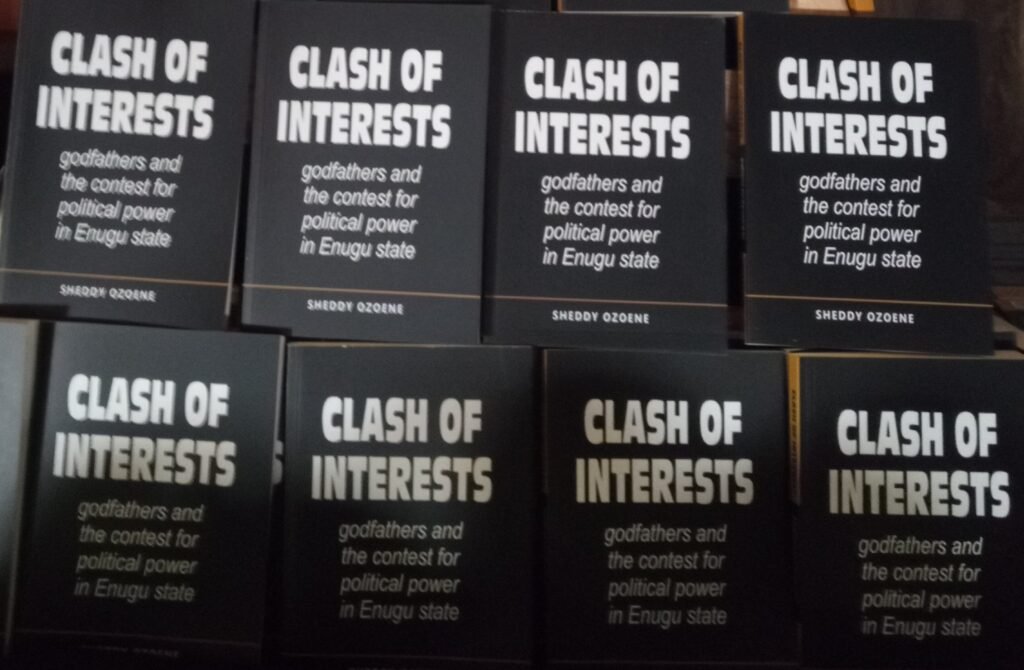
There is a Chapter on the Harvest Of Impeachments during the Chime days. Political bad blood had led to the “chicken” impeachment of Sunday Onyebuchi as Deputy Governor, the unsuccessful impeachment of Gov Chime himself in 2014 and the attempted impeachment of House Speaker Eugene Odo two weeks after for having the temerity to lead the plot against Chime.
There is the Chapter on the early-day highs and lows of the Ugwuanyi administration, exemplified in Enugu city’s loss of its priced listing among the 100 most resilient cities by the Rockefeller Foundation, and the roaring return of Rangers International to Nigerian League victory after 32 years, respectively. There is a Chapter on the travesty of internal democracy, how governors railroad party stakeholders under a questionable party nomination process to fix their cronies as Local Government Chairmen as well as state and federal legislators. There is also a detailed report on Chimaroke Nnamani’s 11-year journey to the political wilderness and the rapprochement that led to his political rebound in 2018 and eventual election as Senator the following year.
There are many, many more revelations in this book of over 246 pages with all the graphic details.
As Osita Okechukwu (DG Voice of Nigeria) wrote in the Foreword, no one book or historical account can be exhaustive on its own, but it is good that the book opens a new intellectual vista for those interested in the state’s contemporary history. It provides the basis on which readers can best understand the state’s political history, interpret those recurring political crises and the pervasive culture of political godfatherism in the state.
For a book whose accounts are factual, balanced and definitely not written from a partisan standpoint, Okechukwu insists that CLASH OF INTERESTS is “a treasured addition to whatever exists regarding the political history of Enugu state, one that every discerning reader should be proud to read”.
The book is available for N4,000 only at:
*All major airports in Nigeria
*Book Consult, Shoprite Mall, Enugu
*RovingHeights Bookstores in Abuja and Lagos
*Booksellers, Abuja and Ibadan
*Sunshine Booksellers, Ibadan
*Pentagon Supermarkets, Enugu
*Dolphin Restaurants, Otigba, Enugu
*Ritz Hotels, Abuja
Copies can be delivered at homes in Enugu, PH, Abuja and Lagos.

